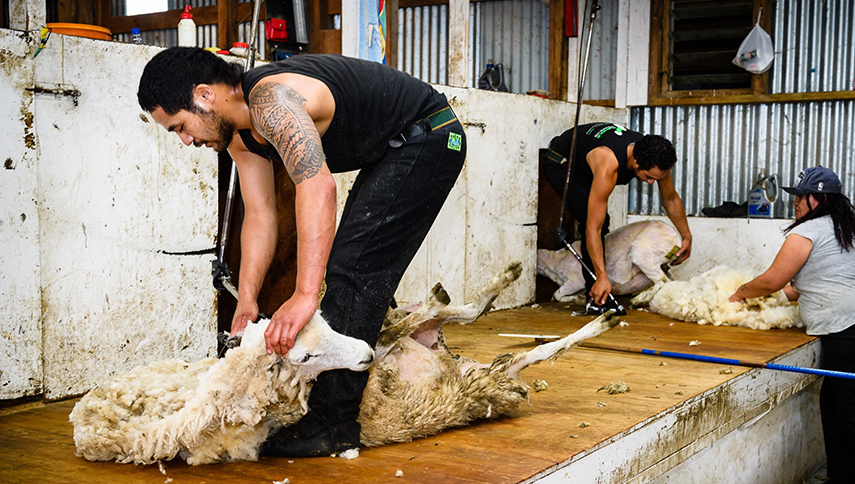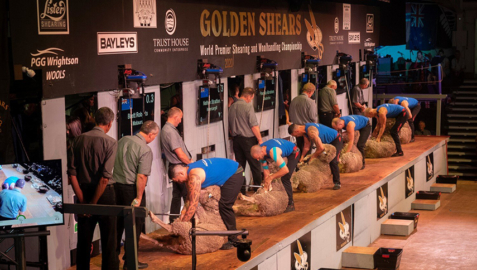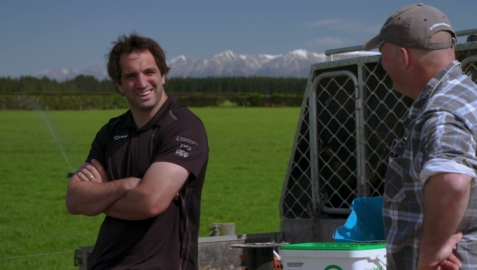
Raising our game in the woolshed
Module Overview
Farmstrong is partnering with wool harvesting injury prevention initiative Tahi Ngātahi to help shearers and wool handlers look after themselves in the shed.
Declining sheep numbers and Covid-19 border restrictions have combined to create a shortage of local shearers. This means the pressures and demands on those working in the physically-demanding job are likely to be higher than ever, says Mark Barrowcliffe, President of the NZ Shearing Contractors’ Association.
It takes two years to become a trained shearer, so we can’t just fill in the current labour shortages overnight. This year’s going to be tough. Once you start to overload any work sector injuries can happen.
“Over the course of a day, a shearer will burn through the same amount of kilojoules as someone running a marathon. For a person to cope with that, it’s all about how well you prepare and repair your body and mind. That’s why we welcome the opportunity to work with Farmstrong to make sure the shearers we’ve got stay fit and healthy.”
Keeping workers injury-free is a big issue. The wool producing sector has been losing up to 9,300 working days every year to injury. Tahi Ngātahi aims to reduce common injuries by 30% and build a more skilled workforce. It’s part of a new $1.8m pilot training programme, Kaiaka, which will create 150 new shearing jobs and upskill 120 existing shearers.
To date, over 1,000 trainees and shearing contractors have signed up to the Tahi Ngātahi online training platform, which uses video clips to pass on skills and safety tips for running a safe and productive wool harvest.
Marlborough shearing contractor Sarah Higgins says: “The physical and mental challenge of shearing is exactly like a sport and you have to treat your body like any athlete would. Keeping on top of your stretching and flexibility can really help you stay in condition.”
“Tahi Ngātahi has made a big difference to the way we do things. It helped my staff appreciate that they do need to look after themselves and maintain their bodies while they are working. If you can get your staff on board with Tahi Ngātahi, then the whole business performs better.”
Sir David Fagan who won the Golden Shears 16 times, set 10 world records and shore for 35 years, says: “It’s amazing what you can get out of your body if you fuel it properly, eat properly and put the right fluids in. The injury side of shearing can be huge. I think every shearer’s had a bad back. That’s why preventative maintenance, stretches and conditioning are important. You’ve got to understand your body. You can hammer it, but you still come through fit at the end of the day.”
Mark Barrowcliffe has noticed a marked change in attitudes in the industry. “When I started, this industry used to be so competitive that if the person working next to you ‘fell over’, other people acted as if they’d won something. But nowadays if people see someone struggling, the crew passes that on to us, so we can do something about it.”
“I think Farmstrong’s awesome and we encounter it daily. There’s not a farmer that doesn’t know about it. I’ve really noticed the conversations out there are changing and that farmers are starting to talk about what they need to do to look after themselves as well. That’s a definite shift.”
“The shearing industry contributes around $800 million annually to New Zealand, and there are exciting opportunities for growth, but any industry’s only as good as the people who work in it. That’s why our team leaders don’t just talk about shearing any more, they’re more aware of the ‘top paddock’ stuff, the mental side of things, and are keen to help others if they can. Farmstrong’s definitely on our agenda.”
“Our crews can visit more than 50 farmers in any year. Over the years, we get to know farmers very well and can soon tell if they’re struggling. My message to them is talk about it and get help. After all, everyone has problems. Talking about them isn’t a sign of weakness, it’s a sign of strength. It’s not just shearers who need to stay in good nick. The farmer does too.”


